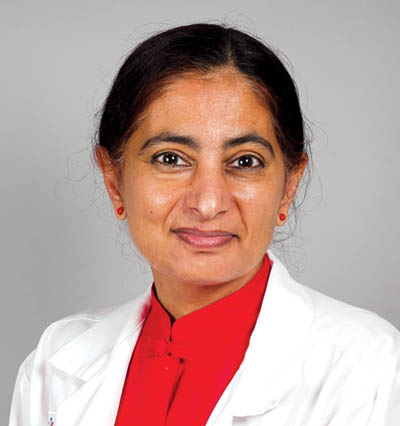VACCINES SAVE LIVES
Vaccines expose the body to a weakened form of a disease, which allows the immune system to build defenses against it. “Vaccines can prevent serious illness and death from so many diseases that used to kill hundreds of thousands of children before we had vaccines, and still continue to do so in places where they don’t have vaccines. As the diseases have become less common, we have forgotten how serious and dangerous some of these illnesses can be,” says Dr. Jasjit Singh, an infectious disease specialist at CHOC.
DEBUNKING THE MYTHS
Some parents do not vaccinate their children, believing myths that vaccines are dangerous or cause disorders like autism. Parents also cite concerns that too many vaccines are given at once. Despite much research, there is no scientific evidence that vaccines are dangerous, cause autism or overload the immune system. Every day, a healthy baby’s immune system successfully fights off millions of germs. Antigens are parts of germs that cause the body’s immune system to go to work. “What often happens is a parent talked to a friend who planted a seed of doubt in their mind. They want to look into it further, and meanwhile hold off on vaccines. I would like to remind parents that not vaccinating and delaying vaccines is dangerous,” says Dr. Singh.
PROTECTION FROM MANY DISEASES
“Vaccination is an ongoing, important part of your medical care. Vaccination is a lifetime preventative medicine tool that we have,” says Dr. Singh. The Centers for Disease Control and Prevention (CDC), the American Academy of Pediatrics and the American Academy of Family Physicians all recommend that children get vaccinated against chicken pox, polio, hepatitis A and B, measles, mumps, rubella, diphtheria, tetanus, influenza (the flu), and pertussis (whooping cough), among other diseases. Adults should be vaccinated against illnesses like the flu, notes Dr. Singh, and certain vaccines are encouraged for pregnant women, especially the whooping cough and flu vaccines, she adds.





















